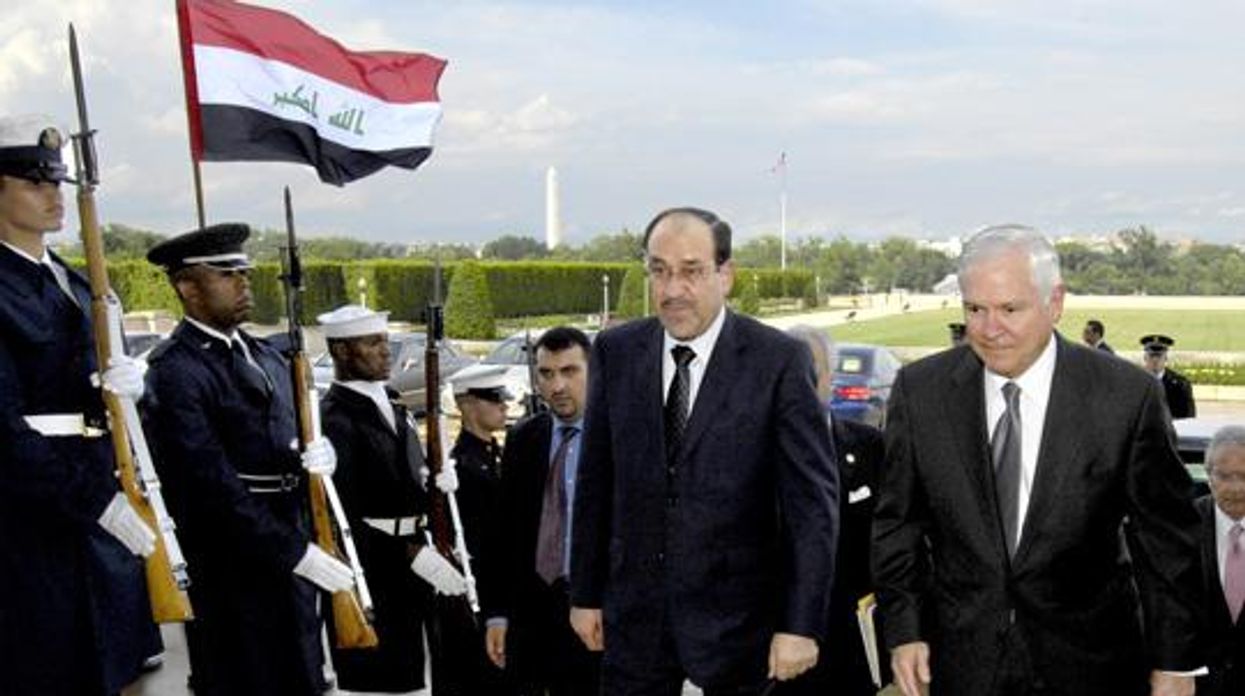'Misery Acquaints a Man with Strange Bedfellows'
Misery acquaints a man with strange bedfellows.
- Shakespeare, The Tempest
Last month's enemies are this month's friends. Sort of.
We owe it all to Nouri al-Maliki. He has a way of bringing enemies together.
Misery acquaints a man with strange bedfellows.
- Shakespeare, The Tempest
Last month's enemies are this month's friends. Sort of.
We owe it all to Nouri al-Maliki. He has a way of bringing enemies together.
When Saddam Hussein, a Sunni, was running Iraq he favored the Sunnis and suppressed the Shiites. When he was ousted the Shiites took over and began to treat the Sunnis the way the Sunnis had treated the Shiites. The Sunnis, in assorted incarnations, are now trying to regain control of the country. And that brings us to today's lesson that explains how those events have affected the United States' relationships to countries that until recently were hostile to its interests.
Vladimir Putin is our first example. Much of what Mr. Putin has done gives the impression that he doesn't care what the rest of the world and particularly the United States, think about what he does. He took over Crimea. He blocked the United Nations from imposing sanctions on Syria and on Iran. It now turns out, however, that we have some things in common. Mr. Putin wants to make sure that Iraq's Prime Minister, Nouri al-Maliki and the Shiites remain in control of Iraq. On June 28, 2014, he delivered 12 fighter jets to Baghdad to use in their fight against the Sunni militants seeking to take over the country. Following delivery of the jets, Mr. al-Maliki was generous in his praise of the Russians and their generosity and somewhat petulantly commented that the U.S. had promised to deliver jets and attack helicopters but had not yet done so. (They are now supposed to be on the way and may have already arrived.) Russia is not the only country with which the United States' interests are now aligned in order to defeat the Sunni insurgents seeking to oust al-Maliki and the Shiites-Iran is another.
Iran and Iraq have had what can best be described as a testy relationship.
Many years ago Iran, which was run by Shiites and Iraq which was run by Saddam Hussein who was a Sunni, were engaged in what was called the First Persian Gulf War that involved, among other things, boundary disputes and concerns about the effect of the Iranian revolution on the region. As was the custom in the 1980s (and subsequently) the United States was involved in that war on both sides. It provided arms to Iran to use against Iraq while simultaneously providing covert assistance to Iranian emigre groups who were trying to overthrow Iran's regime. It sold arms to Iraq and furnished Iraq with intelligence information it could use against Iran. In order not to give Iraq too much of an advantage, however, the information given Iraq was incomplete which made it less useful than it might have been. In addition, to level the playing field the United States gave the same kind of intelligence information to Iran. Russia was also involved. It sold arms to Iraq. It did it quietly, however, so as not to offend Iran. When asked about this when this was all going on, a Russian spokesman explained that the only reason Russia was selling arms to Iraq was to keep Iran from winning. The spokesman said if there was a stalemate between the two countries settlement became more likely. The former enemies are now on better terms.
Iran is helping Iraq in its fight with the Sunnis in their assorted incarnations. It is flying drones over Iraq and giving Iraq information about the movements of ISIS. That is the same sort of aid the U.S. is giving since the U.S. is flying 30 to 35 drone missions a day over Iraq. Iran, like Russia and the U.S. is also providing military aid to Iraq. It is shipping in two plane loads of military supplies to Iraq each day and thus far has shipped in more than 70 tons of materiel to the government to use in its fight against ISIS. Iran has also requested that United States forces fight alongside Iranian forces in order to defeat ISIS.
Now that the U.S., Iran and Russia are sort of on the same page, at least as far as Iraq is concerned, a new friend has joined the group. His name is Haffiz al-Assad and he rules Syria.
Mr. Assad is the duly elected president of Syria having just won reelection with 88.7% of the vote, a victory that can only be described as resounding. The Syrian air force, when not dropping barrel bombs on its citizens, has given the United States, Russia, Iran and Iraq assistance by bombing the Sunni forces that are on the Iraq side of the border between the two countries. Presumably it does not use barrel bombs since those would be considered inhumane if they were being dropped on anyone other than Mr. Assad's own citizens. It uses garden variety bombs.
The only conclusion one can draw from the foregoing is that war makes strange bedfellows. How they'll all feel when they wake up in the morning we'll find out if that ever happens.

